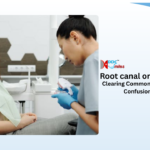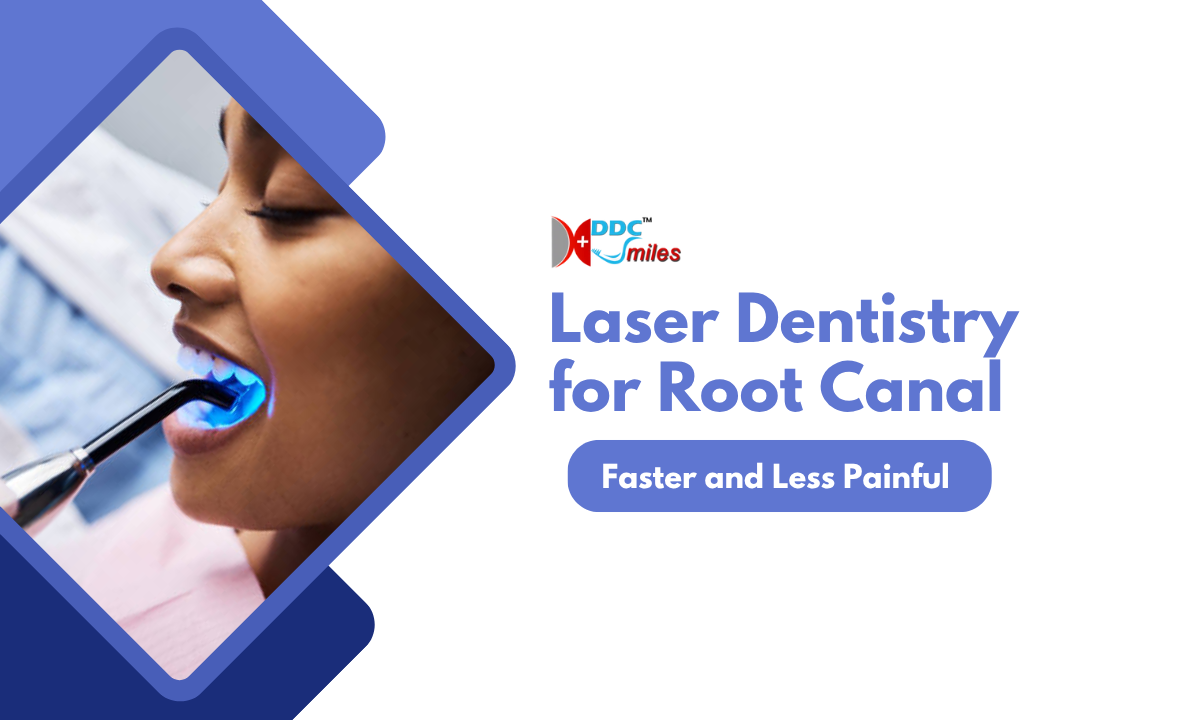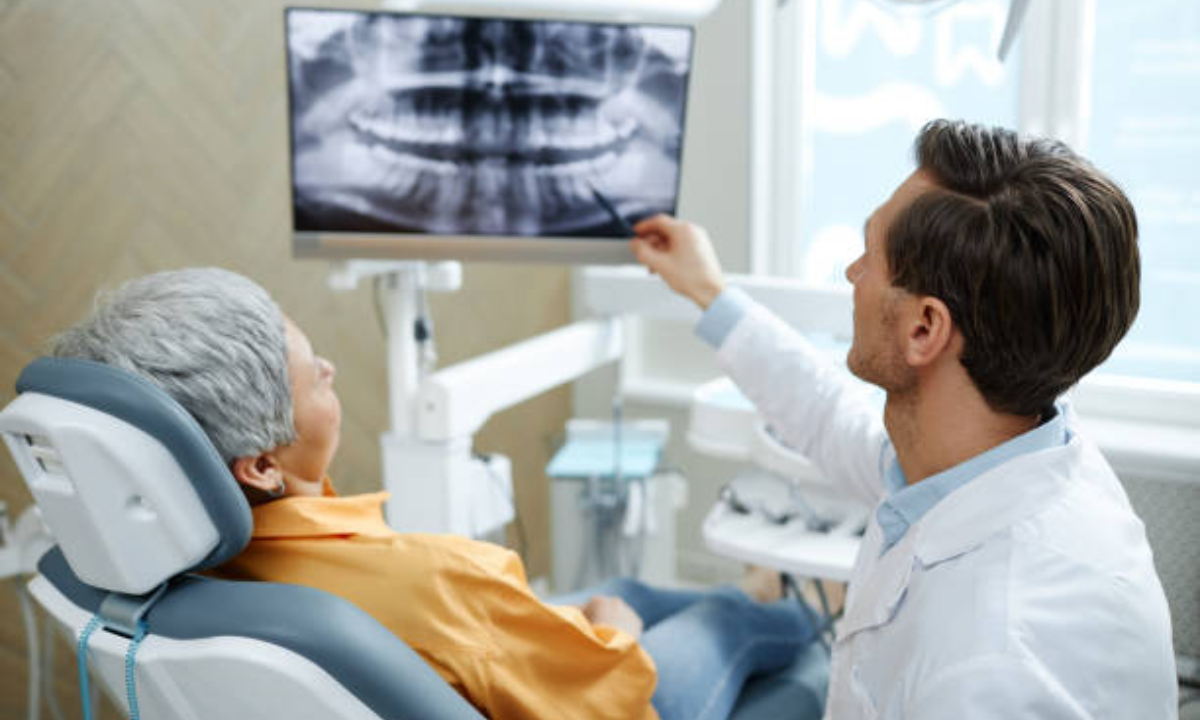When I explain to patients at DDC Smiles Clinic what laser dentistry for root canal means, they often imagine a futuristic beam zapping away pain. In reality, it’s a sophisticated blend of light energy and precision that lets us treat infections inside teeth with less trauma, faster recovery, and often minimal discomfort. As a dentist deeply committed to patient comfort, I believe laser dental treatment is transforming how we approach root canals in Koramangala, HSR Layout, and beyond.
Let me walk you through how laser treatment for teeth works in root canals (often called laser RCT), why it’s becoming a preferred alternative to traditional methods, and how at DDC Smiles, we make the experience as smooth as possible.
How Laser Root Canal Works
First, a bit of background. In a conventional root canal, we use drills, files, and chemical irrigants to remove infected pulp, disinfect the canal, and then seal it. With endodontic laser techniques, we can enhance or replace some steps by applying focused laser energy to clean and sterilize complex canal systems.
Here’s a simplified version of the steps we use:
Diagnosis & Access
We begin with X-rays and possibly CBCT scans to assess the extent of infection. We create a small opening in the tooth to reach the root canal system.
Laser Decontamination & Cleaning
We introduce a fibre-optic laser tip into the canal and activate the laser energy to remove microbial biofilm, necrotic tissue, and the smear layer. This helps us reach microscopic recesses and dentinal tubules that conventional tools may miss. Lasers also help sterilize the canal more effectively than irrigants alone.
Shaping & Final Disinfection
We may combine light mechanical filing with laser pulses to refine canal shape and ensure full disinfection.
Sealing & Restoration
Once cleaned and disinfected, we fill and seal with biocompatible materials and restore the tooth with a filling or crown.
Because the laser can seal tiny tubules as it works, we often reduce bacterial recontamination risk.
Advantages of Laser RCT vs Traditional Root Canal
Less Pain, Less Trauma
Lasers are minimally invasive. That means reduced damage to surrounding tissues, less vibration or heat, and often less post-procedure discomfort. Many patients report the experience as significantly gentler than traditional drills.
Faster Recovery & Healing
Because soft tissues are less irritated, bleeding is minimal, and healing is quicker. Some cases even allow simpler post-op care.
Better Disinfection in Hard-to-Reach Areas
The laser can penetrate microscopic areas and disinfect dentinal tubules, increasing the chance of eliminating lingering bacteria.
Possible Single-Visit Treatment
In suitable cases, we may complete the root canal in one visit, thanks to the efficiency of laser-assisted disinfection.
Preservation of Healthy Tooth Structure
Because we can use the laser more selectively, less healthy tooth tissue is removed. That helps maintain strength and structural integrity.
Limitations & Considerations
While laser dental treatment offers many benefits, it’s not perfect in every scenario:
- Some complex canal anatomies or very calcified canals may still require mechanical instrumentation.
- The degree of laser penetration depends on wavelength and power settings; misuse could risk thermal damage.
- Research is ongoing regarding long-term comparative success rates.
- Laser tools are expensive and may not be available in all clinics.
Thus, at DDC Smiles Clinic, I often combine laser protocols with conventional methods when needed, choosing the approach best suited to each tooth.
Laser Dentistry & Related Treatments
When we speak of laser dental treatment, this extends beyond root canals. We use dental lasers for:
- Removing superficial tooth decay
- Laser cleaning and sterilization
- Laser-assisted dental filling procedures
- Soft-tissue surgery, gum contouring, and more
At DDC Smiles, we tailor laser settings (wavelength, energy) to each application so you get optimal results with minimal tissue damage.
Our Promise at DDC Smiles Clinic (HSR Layout & Koramangala)
As the lead dentist, I believe that introducing laser RCT is part of our commitment to elevating your dental care experience:
- We maintain advanced endodontic laser systems in both locations.
- We ensure a calm, pain-aware environment for patients anxious about root canals.
- For those seeking the best dentist for laser dentistry in HSR Layout or Koramangala, I welcome you to visit us, see our setup, and ask about laser options.
- If you are looking for a dentist in Koramangala and a dentist in HSR Layout who truly invests in modern tools, DDC Smiles is here.
We strive to make each root canal procedure faster, gentler, and more predictable, without compromising quality.
Conclusion
Laser dentistry for root canal isn’t just a buzzword; it’s a practical, evolving tool in our hands. At DDC Smiles, the best dental hospital in HSR Layout and Koramangala, we have seen firsthand how laser RCT can make treatments faster, more comfortable, and more thorough. While traditional methods are still valuable, adding laser protocols helps us deliver superior outcomes. If you have been avoiding a root canal out of fear or uncertainty, let’s have a conversation. Your smile and comfort deserve the best.
FAQs
1. Can laser dentistry do root canals?
Yes. Laser-assisted techniques are used to clean, disinfect, and sterilize root canal systems, often in conjunction with conventional tools.
2. Is laser root canal better than traditional?
Often yes, because it’s less invasive, reduces trauma and pain, aids in better disinfection, and can promote faster healing. But the decision depends on tooth anatomy and infection severity.
3. Is laser root canal painful?
Usually not. Patients commonly experience much less discomfort than with conventional methods, though local anesthesia may still be needed in some cases.
4. How long does a laser root canal take?
Typically, around 60–90 minutes for many cases, with a possibility of completing the procedure in a single visit.
5. Is it available at DDC Smiles Clinic?
Yes, at DDC Smiles Clinic in HSR Layout and Koramangala, we offer laser-enhanced root canal treatment and other laser dental treatments. Feel free to schedule a consultation to see whether your case qualifies.





